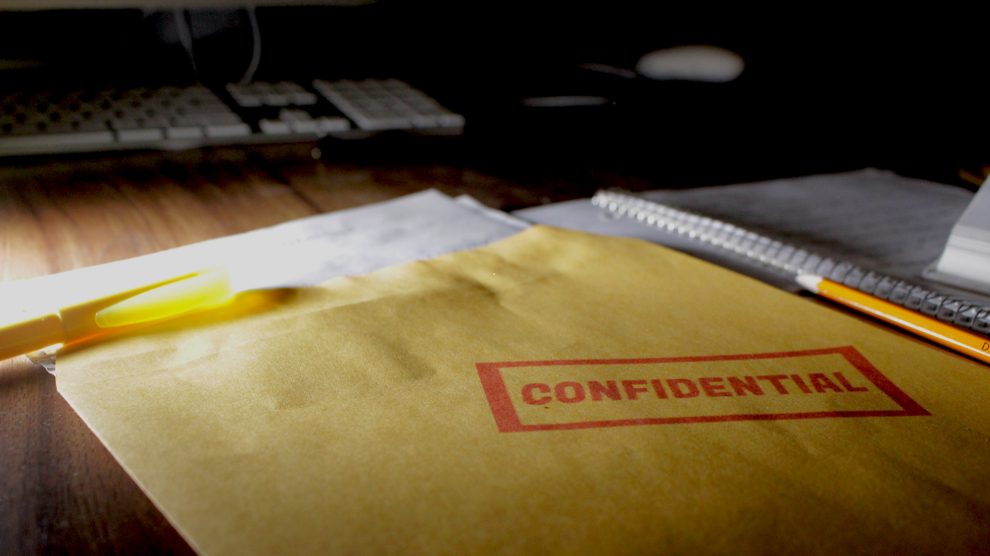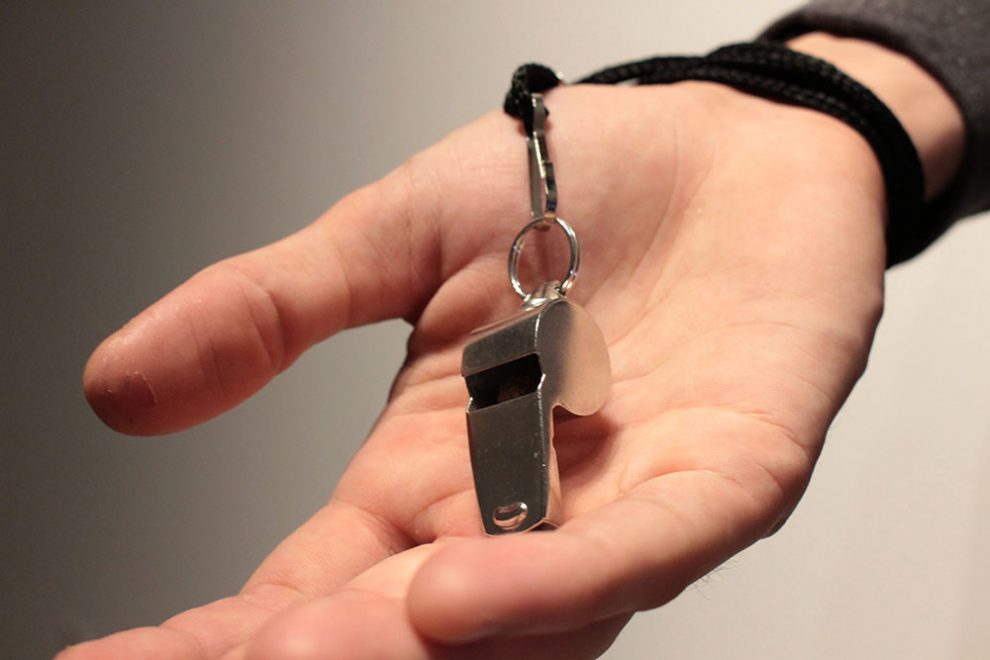Canada finally has a source protection law — is it enough?

caption
A journalist writes down information from a source in this photo illustration.Government and the courts continue to consider the rights of journalists
The importance of press freedom can never be understated. For Canadian journalists, horrific headlines from across the globe of missing, murdered, or imprisoned reporters are sobering reminders of the privilege that we hold. Because our Constitution protects freedom of the press as a fundamental right, journalists are able to do their jobs without fear of persecution.
All things considered, press freedom in Canada is objectively good. But could it be better? In 2015 Reporters Without Borders, an international NGO that monitors global press freedom, ranked Canada eighth on its World Press Freedom Index. The following year, it fell to 22nd before rising, slightly, to 18th in 2017 and 2018.
In order to understand what caused the sudden drop, it’s important to grasp that press freedom is comprised of much more than simply permitting journalists to gather and report news.
In the past three years, several high-profile cases involving journalists and their sources have made headlines across the country, drawing sharp criticism from press freedom advocates.
In 2016 it was discovered that, in an attempt to identify secret sources, police had been tracking the phone activity of eight journalists in Quebec since 2008. Later that year, Vice News national security reporter Ben Makuch was ordered by the RCMP to hand over all of the information, notes and communications that he had on a source, to assist with a terrorism investigation.
In response to the scandal in Quebec parliament passed Bill S-231, the Journalistic Sources Protection Act, in October 2017. Unfortunately for Makuch the bill was too little, too late. Since the original order was made in 2015, the new law isn’t applicable in his case. On Nov. 30, 2018 the Supreme Court upheld the production order, ruling that Makuch must hand over the relevant notes to the RCMP.
Following the ruling, Vice issued a statement calling it “dark day for press freedom,” noting that “the decision will no doubt have a chilling effect on both sources, who may be reluctant to talk to reporters, and on journalists themselves, who could be less inclined to report on sensitive issues.”

caption
An envelope stamped confidential sits on a desk in this photo illustration.‘Chilling effect’
When authorities force a journalist to reveal a source’s identity, or to hand over information that the journalist has obtained, it makes potential sources more reluctant to come forward. In the legal world, this is known as the “chilling effect.” In the past, the courts have acknowledged that prying information from journalists is, in the bigger picture, harmful to democracy. When anonymous sources and whistleblowers share their stories with journalists, people who abuse power are held accountable.
“A lot of judicial ink has been spilled trying to define or explain what the chilling effect is in the context of these cases,” says Justin Safayeni, a Toronto-based media lawyer.
“But there’s another dimension to it,” he says. “Which is not sources not coming forward, but journalists being hampered in what they’re willing to report, what material they’re willing to use and hang on to. Because they’re concerned about what the implications may be for their sources.”
The Journalistic Sources Protection Act was passed unanimously by Parliament, a rare feat for a private member’s bill. The act provides some new legal protections for journalists who are ordered to divulge their confidential sources to police. It also makes it harder for police to obtain a warrant to access a journalist’s information; in the Quebec surveillance scandal, they were granted by justices of the peace. Now, warrants must be issued by a more informed and experienced Superior Court judge.
The legislation is not absolute; it doesn’t provide a blanket protection for a journalist to refuse to reveal a source. As in the past, a judge can still order a journalist to hand over information or documents that could identify a source, if the judge is satisfied that the information is not available any other way and that the public’s interest in prosecuting a criminal is more important than the negative effects the order could have on freedom of the press.
What the new bill does do, however, is shift the burden for making the argument from journalists onto law enforcement. In the past, it was up to the journalist to explain to the judge why protecting the source was important. Now, it’s on law enforcement to convince the judge that the information held by the journalist is absolutely essential to a prosecution, and that that information is in the public’s interest and cannot be found any other way.
Until late 2017, Canada was one of the last democratic, industrialized countries without a source-protection law, so the bill was welcomed by the journalists. But, as Halifax-based media lawyer David Coles points out, it’s only applicable in criminal cases.
“This is the federal government exercising its jurisdiction over the criminal law,” Coles says. If a journalist is asked to hand over information or reveal a source in a civil case, like a lawsuit, it would still be up to the journalist to prove why they shouldn’t have to do it.
Before Bill S-231
The new legislation likely wouldn’t have been much help to Daniel Leblanc, who in 2005 was ordered to hand over information about a source, to serve as evidence in a civil lawsuit.
The Globe and Mail political reporter had written a series of articles based on information given to him by a confidential source. His work eventually led to a massive investigation into the federal government’s spending habits, revealing what would be come to be known as the “sponsorship scandal.” In an effort to recoup lost money, the attorney general filed a $35 million civil lawsuit against one of the advertising groups involved. As part of their defence, the advertisers wanted to question LeBlanc, among others, to find out who was leaking information.
Leblanc appealed the order, all the way to the Supreme Court. There, it was decided that if a journalist is ordered to reveal the identity of a confidential source, it must be in the interest of the public good. In the future, any judge who hears a similar case must decide what is more beneficial to the public: the administration of justice, or preventing the “chilling effect” that would result in a journalist being forced to identify a source.
In this case, it was clear that Leblanc’s source had done a great public good by exposing corruption in government. Using that source as a defence in a civil lawsuit would do the public little good, while causing other would-be whistleblowers to hesitate to come forward.
There was never any question in Leblanc’s mind — or his employer’s — of fighting to protect his source, despite the time that it cost him, and the money it cost the Globe and Mail (which Leblanc estimates reached six figures).
Because his source trusted him with stories that were immensely important to the public, he felt a duty to fight for their confidentiality. “In that context it was a bit of a no-brainer,” Leblanc says.
While he was happy with the outcome of his case, he says it’s important to not take source-protection for granted.
“I think there’s always a risk for the journalist, for the source,” Leblanc says. “A journalist can’t say, ‘No one will ever find out who you are,’ because a journalist might make a mistake, the source might make a mistake or the authorities might have investigative tools at their disposal.”

caption
A person holds a whistle in this photo illustration.Protecting you and your source
Bert Bruser, a media lawyer for the Toronto Star, has some advice for journalists who use confidential sources: “Don’t have a phone record. Don’t have an email record. Don’t write down the name of the source.”
Before entering the law Bruser earned a master’s degree in journalism from Columbia in 1968. For him, the journalist-source relationship is sacred. “I believe that if you make the promise that you will not reveal the source, you have to keep it.”
Despite his absolutist attitude towards source protection, Bruser doesn’t believe that press freedom in Canada has regressed.
“Over the past decade, the balance of the cases that have gone through the Supreme Court have gone further and further in the journalists’ favour. In other words, the information has to be absolutely goddamn necessary, the courts will say, I think. So that’s good.”
So, where does this leave us? When is it necessary for a journalist to give up a source? And will new laws alter that threshold?
“I don’t think the courts or society would tolerate a media organization that knows of a future crime that the police can’t interfere with, and decide to keep it to themselves,” says Coles. “That’s black and white, in my opinion.
“It gets more complicated when the journalist knows who set off the bomb yesterday. That then, I guess, becomes the challenge.”
Whether or not the Journalistic Sources Protection Act will offer journalists significantly more legal protections than they already had is yet to be seen. The Supreme Court is set to hear the first case in which it is applicable in December 2018.

